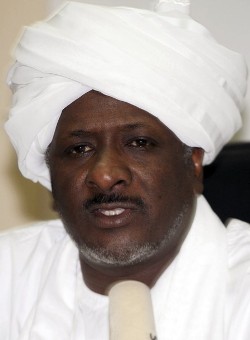Sudan to undertake new austerity measures to finance military efforts
April 25, 2012 (KHARTOUM) – The Sudanese government announced on Wednesday the introduction of new measures aimed at increasing revenues and reducing spending in order to put aside more funds to support the army amid growing military escalation with South Sudan.

Abdel-Rasool also ordered the curtailment of employees’ perks except for contractors and blocking any donation efforts except those made for the Sudan Armed Forces (SAF). Furthermore, he cut gasoline supplies to these companies by 50%.
The official revealed that all ministers agreed to give away a month’s salary for the war effort, while ordinary civil servants will donate two days worth.
A state finance minister Magdi Hassan Yassin called on banks to add a nominal fee on ATM transactions that would be used to finance military efforts as well.
South Sudan’s army, the SPLA, seized the Heglig oil field in South Kordofan two weeks ago but finding itself internationally isolated over the move Juba ordered a withdrawal from Heglig last week.
But Khartoum insists that its army was the one that expelled SPLA forces from the region which reportedly saw its oil facilities severely damaged which a parliamentary official in Khartoum estimated to damage to be worth $3 billion.
The Heglig oil field is vital to Sudan’s economy because it accounted for half the 115,000 barrels per day (bpd) output that remained in its control when South Sudan seceded in July 2011.
The field’s output has stopped as a result of the fighting. It is not clear when production could resume though many analysts say it could be several months away.
The landlocked South had already closed its 350,000 bpd output after failing to agree with Khartoum on how much it should pay to export via Sudan’s pipelines, its Red Sea port and other facilities.
The Sudanese government was already in the process of amending its budget to reflect the shortfall in revenue projections which built into it a $36 per barrel oil transit fee which Juba swiftly rejected. Sudanese officials are also likely to add the halt in Heglig oil production.
According to the latest release of the World Economic Outlook (WEO) Sudan’s economy will contract by -7.3% before improving in 2013 to -1.5% and to 1.7% in 2017.
The loss of oil-rich South Sudan last year meant that Sudan no longer has access to billions of dollars worth of crude reserves. Oil was the main source of foreign currency and revenues for Sudan prior to the country’s partition.
(ST)
